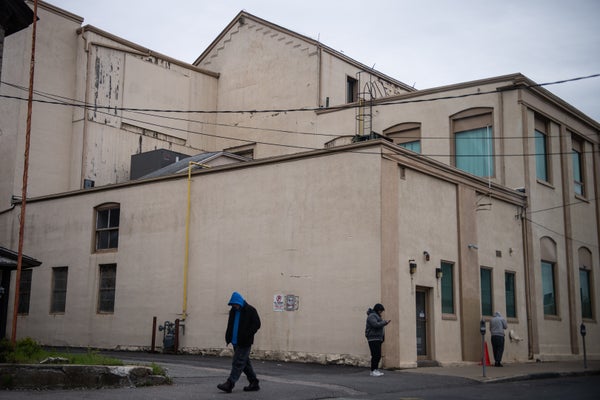Medicaid Expansion Alone Isn’t Enough to Stop the Opioid Overdose Crisis
Expanding the state and federal insurance program helps prevent overdoses. But that only happens with enough treatment, and legal reform, to make it work
People are seen outside a methadone clinic that is located across from Taunton Police Station in May 2019, in Taunton, MA. The clinic administer daily Methadone doses.
Salwan Georges/The Washington Post via Getty Images
Drug overdoses have claimed more than one million lives in the U.S. since 1999, most tied to illicit opioids such as heroin and the nonmedical use of fentanyl. Although people from all walks of life die each day from overdoses, poverty stands out as a driver of this staggering toll. The risk of dying from an overdose is 36 percent higher among people living at or below the poverty line, compared with people living at five times that line, a typical middle class income.
That’s why expansion of Medicaid, the state and federal health insurance program for low-income individuals, has been hailed as an essential policy to prevent this disproportionate suffering. Implemented in 40 states, Medicaid expansion is a pillar of the Affordable Care Act that extends its coverage to all adults living at or below 138 percent of the federal poverty line (equivalent to a yearly income of $20,120 for an individual). Health insurance can help tackle the overdose crisis because it allows people in need to afford substance use disorder treatment, and treatment is a highly effective way to reduce overdoses.
So far, however, Medicaid expansion has not fully realized its lifesaving potential for helping to end the overdose epidemic. One reason why is that it takes more than insurance alone to stave off overdoses.
On supporting science journalism
If you’re enjoying this article, consider supporting our award-winning journalism by subscribing. By…
Read the full article here







